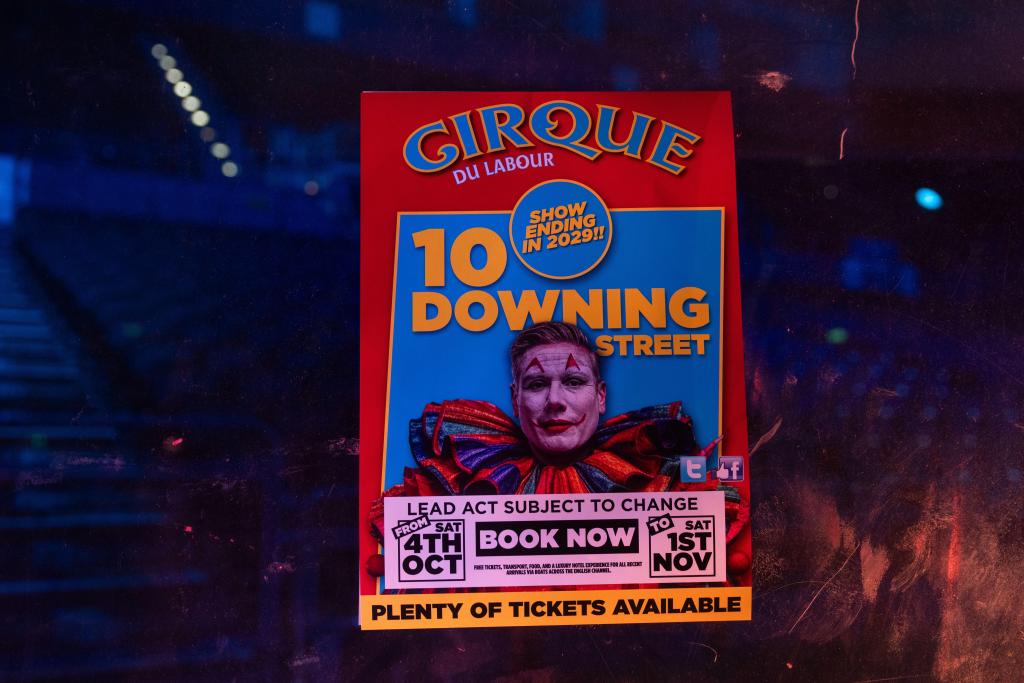
Gold goes on up: having risen by an unprecedented 40 per cent in a year to pass $3,600 (or £2,675) per ounce by the beginning of this week, even its most ardent devotees are wondering how long the surge can last. Much of the rise clearly represents a stampede towards the most traditional of safe havens, in anticipation of market storms ahead as well as fears over inflation and Donald Trump’s threat to the independence of the US Federal Reserve.
But it also has to do with a secular shift in the economic world: de-dollarisation, as favoured by the busload of US-hating heads of states who partied with Xi Jinping and Vladimir Putin in Beijing a couple of weeks ago. The switch is illuminated by news that global central bank reserves held in US Treasury bonds are currently at their lowest level since the 2008 crisis, while central bank gold holdings are at their highest since the mid-1990s.
Everything Trump does to his own economy and everything he threatens to do abroad is likely to deter even neutral nations from lending him more money by filling their vaults with his Treasury’s paper – while the world’s bad (and sanctioned) actors will continue to develop non-dollar payment and trade systems that are beyond US scrutiny or interception. China and Russia being the world’s largest gold producers, the role of gold in de-dollarisation looks certain to grow.
Crypto technology will be in the mix too. But gold – tangible, portable, immutable – will always be an innately trusted means of exchange. Its price may peak in the near term, but while the world’s would-be great powers go on rattling their sabres, its long-term value must continue to rise.
Lucky strikes?
In which case, should you be buying into the trend, whether in bullion, exchange-traded funds or gold-mining shares? ‘Short-term traders might need to reduce expectations,’ says our very own veteran investor Robin Andrews, who’s still celebrating the doubling of the share price of Fresnillo and more modest rise of Hochschild, two Latin American gold and silver miners he tipped here in April. But if the sector’s big names have all done well, he says, late investors in the gold game might look at lesser-known exploration companies with access to capital.
Greatland Resources in Australia and New Found Gold in Canada are both ‘lower-risk bets that should reward the patient investor’. Higher-risk stocks ‘poised for take-off’ include Ariana Resources, with production in Turkey and gold deposits in Zimbabwe, and Kefi Minerals, currently raising finance for a mine in Ethiopia. As ever, do your own research; but never say we don’t offer exotic ideas to distract from the prevailing gloom.
Reshuffle kerfuffle
In halcyon days when Labour ministers still dreamed of growth, Jonathan Reynolds spoke of ‘supercharging the economy with pro-business decisions’. But none was forthcoming in his brief tenure as business secretary and indeed it’s fair to say his legacy amounts to almost nothing of any kind, his only significant appearance in this column being a note in May that he had ‘perhaps wisely’ no-showed as a speaker at a northern industrial banquet.
Then again, Reynolds was by no means the most embarrassing of the 17 holders of the business portfolio since the turn of the century; that would be a contest between long-forgotten Stephen Byers for Labour and Jacob Rees-Mogg’s walk-on in the tragicomedy of Liz Truss. But what are we to make of his successor, the former science minister Peter Kyle? Just another apparatchik with zero private-sector experience and (unlike, say, Peter Mandelson) no talent for charming business chiefs into believing you’re here to help?
Not quite. The most interesting fact about the highly articulate Kyle is that he was a youthful protégé of the late Dame Anita Roddick, founder of the Body Shop cosmetics chain, who created an apparently anti-capitalist ethical brand that was also a hugely lucrative high-growth enterprise. That is, in a sense, exactly the trick Labour business ministers need to pull off.
And of course the key to the trick lies in persuading global investors to back the UK despite a barrage of hostile tax and workplace legislation. Until Baroness Gustafsson resigned as a junior minister last week, that task fell to her. She carried big-tech cred as co-founder of the Cambridge-based cyber-security venture Darktrace, sold last year to US private equity for $5.3 billion.
Her successor Jason Stockwood – a former director of the dating site Match.com who was Labour’s losing mayoral candidate (to Reform) for Greater Lincolnshire – hardly looks like a step up. But he’s also co-owner of Grimsby Town FC, the League Two club that last month knocked Manchester United out of the EFL Cup. In these desperate times, might that count as a positive omen?
Pret fall
‘Pret plunges to £525 million loss’ was a headline that must have had many metropolitan sandwich-munchers thinking: ‘Rayner’s gone, the Tube’s on strike, MasterChef’s in turmoil, and now Pret… Which pillar of civilisation will fall next?’
In fact the ubiquitous chain’s colossal 2024 deficit was caused by a write-down of goodwill (the intangible value attributed to the brand) on the part of the owner, the Luxembourg-based, German-owned JAB Holding – and it probably tells us more about private-equity balance-sheet alchemy than it does about malaise in the high street. Pret’s like-for-like trade actually rose by 2.8 per cent last year, and despite soaring workforce costs it continues to add new outlets in the UK and US.
There’s even a possibility of a public share offering, the irony being that the better the brand is recognised in New York, the likelier the listing of this sterling British success story will end up over there, rather than on London’s fading stock exchange.








Comments